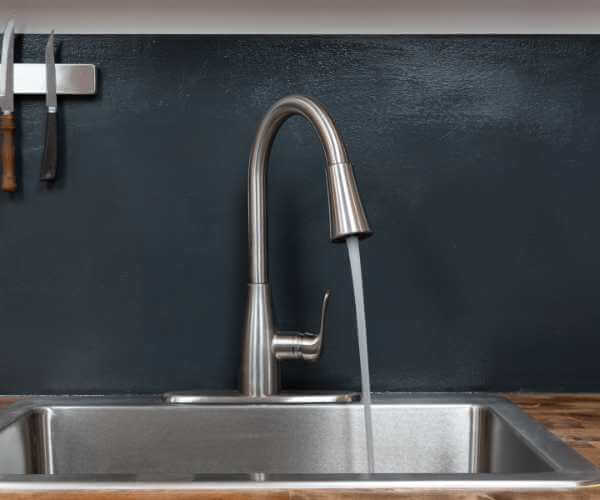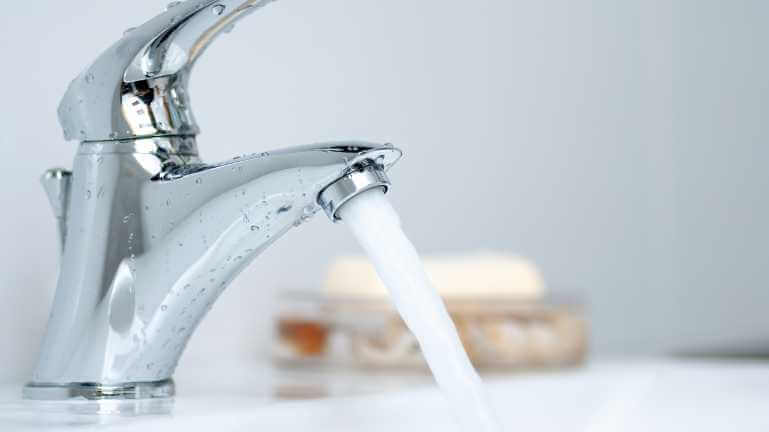Water is the essence of life, and clean water is a fundamental human right. It is crucial for maintaining good health, hygiene, and overall well-being. However, due to various factors such as pollution and inadequate sanitation, the quality of water we consume may not always be up to par. This is where water filters come into the picture.
Water filters serve a vital purpose in ensuring the water we consume is free from harmful contaminants. They are devices that remove impurities from water using a physical barrier, a chemical process, or a biological process. The ultimate goal is to produce water that is safe and clean for consumption.
Investing in a water filter is a step towards safeguarding your health and that of your family. However, it’s essential to understand the various aspects of water filters, including their types, how they work, and the costs associated with them.
Key Takeaways:
- Water filters are essential for ensuring clean water, a fundamental human right.
- Types include pitcher, faucet, under-sink, whole-house, and portable filters, each with varying costs and installation requirements.
- Consider long-term maintenance and replacement costs when investing in a water filter.
- Despite initial expenses, water filters offer health, financial, and environmental benefits over bottled water.
Understanding Water Filters
A water filter is a device that purifies water by removing impurities through various methods. These impurities can range from bacteria and viruses to chemicals and heavy metals. The type of impurities a filter can remove depend on its design and technology.
There are several types of water filters available in the market, each serving a specific purpose. These include pitcher filters, faucet filters, under-sink filters, whole-house filters, and portable filters. Each of these filters operates differently and is suitable for different needs and environments.
Water filters work by passing water through one or more filter media. These media can trap or neutralize the impurities present in the water. The purified water is then ready for consumption. The effectiveness of a water filter in removing impurities depends on the quality of the filter media and the technology used.
Factors Influencing the Cost of Water Filters
The cost of water filters can vary widely based on several factors. The quality of the filter is a significant determinant of its price. High-quality filters that can remove a wide range of impurities tend to be more expensive than basic filters.
The type of filter also influences its cost. For instance, whole-house filters that purify all the water entering a house are generally more expensive than pitcher filters that only purify a small quantity of water at a time. Similarly, the brand of the filter can also impact its price, with well-known brands often charging a premium for their products.
Installation costs are another factor to consider. Some filters can be installed easily without professional help, while others may require the services of a plumber or technician. The cost of installation can add significantly to the overall cost of the filter.
Cost of Different Types of Water Filters
The cost of water filters varies based on their type. Pitcher filters are generally the most affordable, with prices ranging from $20 to $100. Faucet filters are slightly more expensive, with prices typically ranging from $30 to $200.
Under-sink filters are more advanced and, hence, more expensive, with prices ranging from $100 to $500. Whole-house filters, which purify all the water entering a house, can cost anywhere from $300 to over $1,000. Portable filters, which are designed for travel or outdoor use, can cost anywhere from $20 to $100.
It’s important to note that these are just average prices, and the actual cost can vary based on the brand, quality, and features of the filter.
Cost of Water Filter Installation
The cost of installing a water filter can vary based on the type of filter and whether you choose to do it yourself or hire a professional. DIY installation can be a cost-effective option for simple filters like pitcher filters or faucet filters. However, it requires some basic plumbing skills and the right tools.

Professional installation is generally recommended for more complex filters, like under-sink filters or whole-house filters. The cost of professional installation can range from $100 to $500, depending on the complexity of the installation and the rates of the plumber or technician.
It’s important to factor in the cost of installation when considering the overall cost of a water filter. A filter that seems affordable at first glance may end up being quite expensive once installation costs are added.
Maintenance and Replacement Costs
Like any other device, water filters require regular maintenance to function effectively. This includes replacing the filter media at regular intervals. The frequency of filter replacement depends on the type of filter and the quality of the water being filtered.
The cost of replacement filters can add significantly to the overall cost of a water filter. Replacement filters can cost anywhere from $10 to $100, depending on the type and brand of the filter. Some filters also require additional maintenance services, such as cleaning or disinfection, which can add to the cost.
| Aspect | Cost Range | Notes |
|---|---|---|
| Filter Replacement | $20 – $100 | Cartridges may need replacing more frequently than the entire filter. The cost depends on the cartridge type and brand. |
| Cartridge Replacement | $10 – $50 | Cartridges may need replacing more frequently than the entire filter. Cost depends on the cartridge type and brand. |
| Annual Maintenance | $50 – $150 | Includes periodic maintenance, cleaning, and replacement parts. Cost varies with filter complexity. |
It’s important to consider the long-term maintenance and replacement costs when choosing a water filter. A filter that seems affordable initially may end up being quite expensive in the long run due to high maintenance and replacement costs.
Cost-Benefit Analysis of Water Filters
Despite the costs associated with water filters, they offer several benefits that make them a worthwhile investment. The most significant benefit is the health benefit. By removing harmful contaminants from water, filters can prevent various health issues such as gastrointestinal diseases, skin problems, and even certain types of cancer.
Water filters can also offer financial benefits. While the upfront cost of a filter may seem high, it can save you money in the long run by reducing your reliance on bottled water. Moreover, by preventing health issues, it can save you the costs associated with medical treatment.
Finally, water filters can have environmental benefits. By reducing the consumption of bottled water, they can help reduce plastic waste. Moreover, some filters are designed to be energy-efficient, thereby reducing energy consumption and carbon emissions.
Comparing the Cost of Bottled Water and Water Filters
When considering the cost of a water filter, it’s useful to compare it with the cost of bottled water. The cost of bottled water can add up quickly, especially if you consume a lot of it. On average, a person can spend anywhere from $100 to $500 per year on bottled water.
In contrast, the cost of a water filter can be a one-time investment, with only minor ongoing costs for filter replacement and maintenance. Over time, the cost of a water filter can be much lower than the cost of bottled water.
Besides the financial aspect, it’s also important to consider the environmental impact. Bottled water produces a significant amount of plastic waste, which is harmful to the environment. In contrast, water filters produce minimal waste and are a more environmentally friendly option.
Tips for Choosing a Cost-Effective Water Filter
Choosing a cost-effective water filter involves understanding your water filtering needs, researching different brands and types, and considering long-term costs. Your water filtering needs depend on the quality of your water source and the specific contaminants you want to remove.
Researching different brands and types can help you find a filter that offers the best value for money. It’s important to consider not just the upfront cost of the filter, but also the ongoing costs for filter replacement and maintenance.
Considering long-term costs can help you make a more informed decision. A filter that seems expensive initially may end up being more cost-effective in the long run due to lower maintenance and replacement costs.
Conclusion
Water filters are a crucial investment for ensuring the health and well-being of your family. The advantages of having them far outweigh the associated expenses. By understanding the various factors that influence the cost of water filters, you can make a more informed decision and choose a filter that offers the best value for money.
Remember, the cost of a water filter is not just about the upfront cost. It also includes ongoing costs for filter replacement and maintenance. Moreover, it’s important to consider the long-term benefits, such as improved health, reduced reliance on bottled water, and a lower environmental impact.
Investing in a water filter is not just a financial decision but also a commitment to your health and the environment. By choosing a cost-effective water filter, you can ensure clean and safe water for your family without breaking the bank.

Ross Walters, an Electrical supplies and Water Appliances specialist, shares his extensive expertise on top platforms. With a focus on empowering professionals and enthusiasts, Ross delivers up-to-date insights and practical advice. His commitment to staying abreast of industry trends establishes him as a trusted source for navigating the complexities of electrical systems and water appliances.

